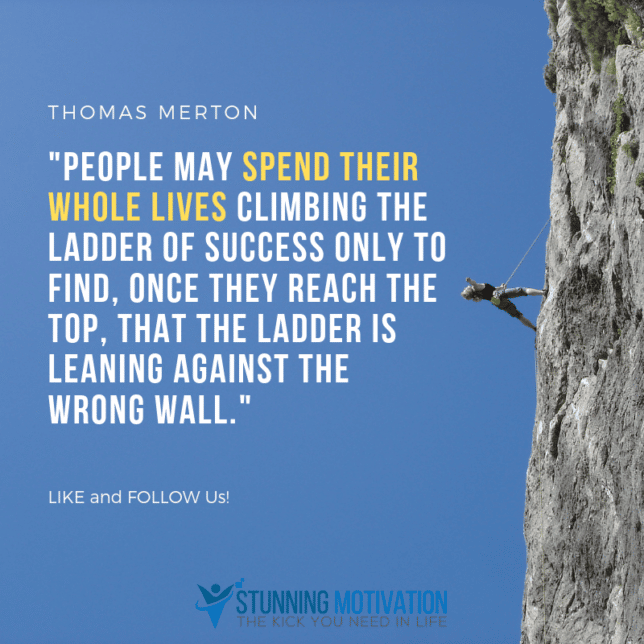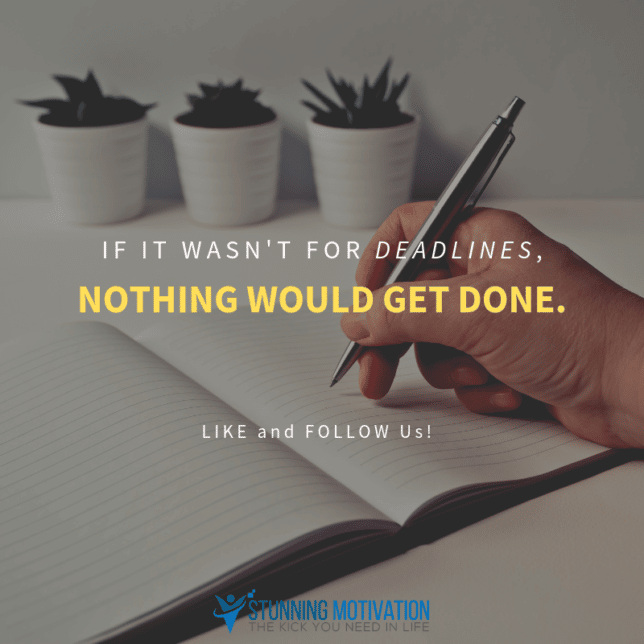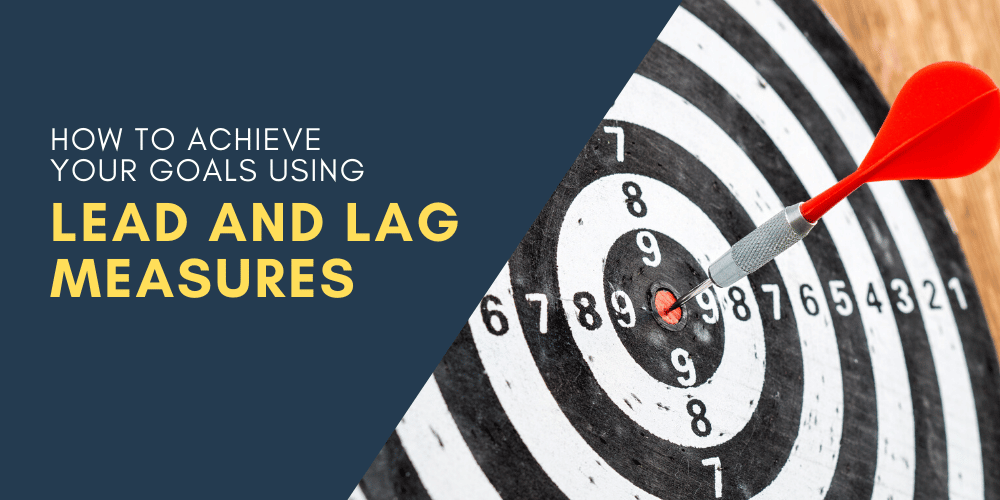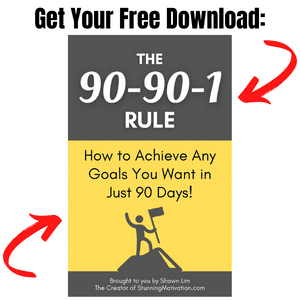No matter what industry you’re in or what kind of work you’re doing, every one of us wants to become more productive and get more things done. We all want to produce exceptional results in the shortest time given possible. The problem is that we often feel like going nowhere, getting nothing done, and yet, we’re all seem to be so busy and have an endless list of things to do.
As a full-time blogger, everything is on my own. I have to set my goals and targets, I need to know where I wanted to go, where I’m heading, and more importantly, I need to figure out what I need to do and what to focus on each day to get things moving.
I know that the reason you’re reading this means you want to learn how to improve your productivity and get more done in less time.
This is the thing that every one of us wants.
There are only so many hours in the day and there are only so much we can do. Hence, making the most out of your time and your energy is important.
I believe that nobody wants to live the next 5 years only to discover that they’re still standing on the same ground, producing no significant results.
We all desire for a better future. We all want to be successful, regardless of whether it is in our personal lives or in our career. We want to make sure we’re constantly moving forward and the time we invested is well worth our effort.
So, how do we go about this?
Begin With the End in Mind
If you want to get the most out of your time and energy, there is one fundamental thing you need to do, which is to start with the end in mind.
You want to know your destination before you begin your journey; because if you don’t, you’ll end up getting nowhere.
You see, productivity starts with clarity. You must first identify clearly your objectives before you can learn to be effective and efficient.
Consider this quote from Thomas Merton below:

“People may spend their whole lives climbing the ladder of success only to find, once they reach the top, that the ladder is leaning against the wrong wall.”
You certainly don’t want to work hard climbing the ladder of success and only to discover that it is not what you want.
The famous author of the best-selling book, The 7 Habits of Highly Effective People, Stephen R. Covey, once said, “If the ladder is not leaning against the right wall, every step we take just gets us to the wrong place faster.”
This is why it is important to be clear with what you truly want to accomplish before you start climbing the ladder. You want to know your vision and make sure your vision is in alignment with your goals before you work hard on it.
Thus, find your vision first, and then only use these 7 productivity principles to help you get more done and produce better success in your everyday life…
1. Schedule Your Priority
The first principle to peak performance is to schedule your priority, not prioritize your schedules. A lot of people get it wrong by thinking that all they need to do is to prioritize their list, no, they got it backward.
You need to schedule your priority if you truly want to produce significant results in life.
For example, as a blogger, my priority is to produce quality content on my blog. Hence, I schedule my writing task. In other words, I time-block and give way to my writing activity. Everything else has to wait.
Each morning, I time-block a couple of hours into writing. I will NOT do other things until I get my writing task done. I will not reply to any email, create any images for Pinterest, or update my Facebook UNTIL I get my writing done.
This is how you schedule your priority. When you schedule and time-block your priority, you make sure you get it done.
Like how a meeting is conducted. When your boss tells you there is a meeting at 2PM in the office, you make sure yourself are there for the meeting at the right time.
You have to apply the same principle to your priority. Give it your full attention and put other tasks onto the waiting list.
You want to make sure you get the most important work done each day. So, use this productivity technique to get the results you want.
What You Can Do:
Identify your most important task or your most result-yielding task, and then schedule the task into your planner or calendar. You want to make sure you get it done.
If you’re in sales, prospecting may be one of your most important tasks to generate sales, thus, schedule your prospecting activity. Say, you time-block 2 hours every morning to make the calls.
This way, you can guarantee yourself making progress and achieving the results you want.
2. Give Yourself a Shorter Deadline
Yes, set a shorter time frame for your work. A lot of people find this contradicting because they think that they’re too busy and don’t have enough time, so they don’t even think they can get more done with a shorter deadline.
Hear me on this.
There is a law called the Parkinson’s Law that states, “Work expands so as to fill the time available for its completion.”
Meaning, you will take as much time as you have to complete the task.
Let me give you an example. If you need to write an article of 2,000 words and you have 4 hours to do it, guess what, you will take your own sweet time and write the article in 4 hours.
Now, what if you have only 2 hours to do it?
When you have a shorter time frame and you know you must get the work done, you will waste no time. You will not check Facebook or chit-chat to your colleagues. You will not do other things until you get the work done.
In other words, when you give yourself a shorter time frame to complete a task, you become more focused. You will put all your attention on getting the work done.
Here’s my own example of how I apply Parkinson’s Law to my daily work life. If I need to leave the office by 5PM, I will tell myself that I need to leave by 3PM instead of 5PM.
Why? So that I will become more focused and get all my tasks done by 3PM, not 5PM. When I change my perspective, everything changes.
I begin to work faster, I waste no time, I don’t check social media when I work, and I discover that I become more productive. I simply focus on getting all the work done so that I’m ready to leave by 3PM.
Of course, you may say that I trick myself to think that way, but that’s the point. You want to give yourself a shorter time frame so that you can focus your energy and get more done in a faster manner.
What You Can Do:
Give yourself a shorter time frame. If a task requires 4 hours to complete, give yourself 3 hours or just two. If your annual goal is to double your sale, challenge yourself and change the deadline to 6 months.
Of course, you don’t want to be unrealistic here. You want to make your goals and targets challenging enough so that you will be driven to produce the success as fast as possible.

3. Share Your Progress Report
So, you want to be productive and get the work done? Then share your progress report with someone else. Don’t keep it all to yourself.
The key here is that you want to make a public commitment.
According to Dr. Gail Matthews, a professor in Dominican’s Department of Psychology in the School of Arts, Humanities and Social Sciences, she conducted a study and discovered that people who share their progress report with an accountability partner have a 76% higher chance to achieve their goals.
At the end of her study, Dr. Gail Matthews said, “My study provides empirical evidence for the effectiveness of three coaching tools: accountability, commitment, and writing down one’s goals.”
Yes, write down your goals and action commitments, and then share your progress report with someone can actually help you achieve your goals.
Therefore, if you want to be productive, make sure you share your progress with someone. Get an accountability partner to support you.
One thing though, make sure you choose the right partner who is willing to help, support, and encourage you.
What You Can Do:
Find an accountability partner and share your progress with him or her every week. This is what I did to my wife. Every week, I share my objectives and my progress with her. She holds me accountable.
You can do the same. Just choose someone who is willing to help and support you.
The key is to put yourself on the line so that you will never procrastinate and make sure you get your work done on time.
4. Manage and Maintain Your Energy
Another productivity principle you can apply is to manage and maintain your energy. This is where most people get it wrong. They think that they just need to have more time so that they can get more things done. Wrong.
Just imagine this – if you sleep for just 4 hours last night, do you think you can have the same focus, energy level and willpower the next day?
And if you don’t have the energy, the focus, and the willpower, how can you be efficient and effective?
Remember, my friend, being productive is not about having more hours, it is about what you do with those hours.
We all have 24 hours a day. And it is what we do during those 24 hours that separate the results we get in our lives. Hence, it has nothing to do with having more time, but rather, how you spend your time that count.
This is why taking short and regular breaks is important. If you have never heard of taking short breaks can make you more productive, I suggest you read my article:
The Importance of Taking a Short Break According to Research
Plenty of studies have been conducted about the benefits of taking short breaks throughout the day. And it has been proven that when you take a break after focused work, your productivity increased.
This is why we have lunch breaks, tea breaks, and in school, we have breaks between period and we have different subjects so that our minds can refresh and rejuvenate.
What You Can Do:
Work with intense focus without multi-tasking, and then take short breaks throughout the day.
One effective method is to use the Pomodoro Technique. This is where you work for 25 minutes and then take a short 5 minutes break. You do this for 4 sessions (called pomodoros) and then take a longer break.
Your ability to focus will decrease as you use it. So, you must refresh your mental power by taking short breaks.
5. Create and Work in a Winning Environment
If you want to be productive, one effective and powerful method is to leverage your environment. When you work in a supportive environment, you tend to be able to focus better and perform better.
I always love to give the example of reading. Let’s say your objective is to read a book for an hour. Do you think where you read the book matter? Yes, you bet it is.
Imagine you are trying to read a book in a busy and noisy location like a wet market where everyone around you is talking and shouting, do you think you can focus on reading?
Not at all. Let’s switch your environment. What if you are reading in a quiet, cozy, comfortable café where the lighting is bright enough and the temperature is just nice. Plus, there is a cup of your favorite coffee next to you. And whenever you need to stop, you can just take a sip of the coffee.
How nice is that, right? Consider the 2 different environments, which one is supporting you to achieve your goal, which is to read the book for an hour? The winner is clear.
Therefore, learn to build an environment where you can win. You don’t want to go against the environment because you will only expense your willpower and end up losing your focus.
You want to create a workplace where you can win, easily.
What You Can Do:
Create a winning workstation. Regardless of whether you are working from home or in the office, make a proper and conducive workplace so that you can work with 100% focus.
There are many things you can do to improve your work environment, here are my 10 tips to engineering a workplace that motivates you.
6. Leverage on Small Wins
You have heard about Newton’s Law of Motion, right? An object at rest will remain at rest and an object in motion will remain in motion unless acted by an outside force.
So, what does this has to do with your productivity? You want to build and maintain your momentum. You want to become unstoppable so that you can achieve more every day.
This is how the principle of inertia works in your everyday work life. You want to start really small by creating small and immediate victories. Why? Because you want to feel good so that you will have more motivation and feel more confident to take even more action.
A lot of people try to tackle the hardest and most difficult task the first thing in the morning. If you do so, you will use up most of your energy and willpower. And when you don’t have any, you will feel tired and no more motivation for the next task.
You don’t want this to happen. Rather than working on your most difficult task first, choose to work on the easiest tasks first.
Create your small victories so that your ‘good feeling’ will snowball and drive you to accomplish more things.
William H. McRaven, a navy admiral once gave a speech about changing the world. He said that if you want to change the world, start off by making your bed:
“If you make your bed every morning you will have accomplished the first task of the day. It will give you a small sense of pride and it will encourage you to do another task and another and another. And, if by chance you have a miserable day, you will come home to a bed that is made – that you made – and a made bed gives you encouragement that tomorrow will be better.”
Watch the video below where William McRaven delivered his inspirational speech about creating small wins:
Thus, start your day small and build your momentum by creating small wins.
What You Can Do:
Identify your tasks and work on the easiest task first. You want to build up your confidence and gain momentum so that you will become unstoppable. When you are in action, you will remain in action, remember Newton’s Law of Motion?
You can also apply the One-Minute Rule to build good habits, to avoid procrastination, and to help you grow your momentum.
7. Reflect on Your Progress
This is what most people don’t do, yet, it is fundamental to becoming productive. If you don’t reflect your progress, how do you know how well you’re performing?
If you are serious about becoming more productive, you must track your results. You need to know the effectiveness of your work.
In other words, you want to find out what went wrong and what went right. You want to know if the actions you execute are getting you the results you desire.
If what you do is not getting you closer to your goals, you will then need to improve or change your method. But the only way you can tell if something is working is to track them.
Just like the content that I posted on Stunning Motivation Facebook page. Some posts are engaging with the followers and some posts are not. Some posts get a lot of shares and some are don’t.
But if I don’t track my result, I will never know. And if I want to improve and manage my result, I must do the tracking.
Peter Drucker, the legendary management consultant once said, “What gets measured gets managed.”
Meaning, if you want to improve your performance, you must measure your performance. The same goes for productivity. If you want to be productive, you must create a system to track your result.
This is why you need to reflect on your progress.
What You Can Do:
Hold a weekly meeting with yourself. And in this meeting, you want to track and measure your progress and results.
You want to find out what is working for you the last week, what is not working, and you also want to create a plan for the coming week so that you know what to do.
Hence, schedule and plan time to review your work and progress every week. When you understand what is making progress and what is not, you can then decide what activities and tasks to pursue and do more. That’s how you become productive.
Conclusion
It is easy to talk about being productive, but when it comes to execution and implementation, things can be difficult. However, you don’t need to feel lost or powerless just because things are difficult.
What you can do is to follow these 7 productivity principles shared above. Use these principles and the examples I shared in your daily life. You will find that the more you stick to these strategies, the more productive you will be.
Do you find these principles useful? Let me know in the comment below.












